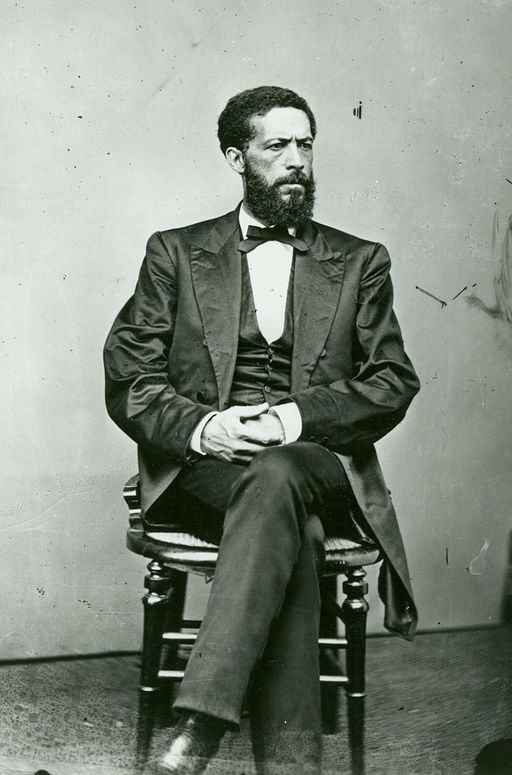Carlisle Herald, July 11, 1872. “The colored citizens of Carlisle and vicinity, contemplate holding a grand National celebration, in commemoration of the Emancipation Proclamation of President Lincoln in this place on Thursday, August 1, 1872. The Committee of Arrangements are making extensive preparations for celebrating this day in magnificent style. It is expected that a large number of delegations from the principal cities and towns of the State will be in attendance. The music will be furnished by bands from Harrisburg, Reading, Marietta, Hagerstown and other places. The parade will form on North street at 10 a.m., and after marching through the principal streets, will proceed to the large grove of Mr. S. Woods, a short distance south of the borough, where dinner will be served up. After which addresses will be delivered by distinguished speakers. There will also be exercises in Rheem’s Hall in the evening, and addresses will be delivered. Several hotels have offered to furnish accommodations to the visiting delegations.”
Carlisle Herald, August 8, 1872. EMANCIPATION COMMEMORATED.
“Last Thursday was a day of rejoicing and merry-making among our colored citizens. For several weeks previously it had been announced that busy preparations were being carried out for a “grand national celebration in commemoration of the emancipation of slaves;” and accordingly, on the day announced, a programme replete with features of interest and festivity was carried out to the satisfaction of all concerned.
The day opened auspiciously, and early in the morning the streets were thronged with people anxious for the day’s proceedings to commence. On the arrival of the morning train going westward, the scene was further enlivened by the arrival of several military and civic organizations, and many strangers, who came to participate in the celebration. Large delegations came during the day from Harrisburg, Chambersburg and nearly all the immediate towns. The Committee of Reception, consisting of Assistant Marshals Thompson, Abel, Branson, Hodge, Jones and Lewis, received all visiting delegations, and escorted them to North street, the place of forming.
At 10 ½ o-clock, the procession, under the charge of Chief Marshal Peter Hodge, was formed on North street, right resting on West, and marched through the principal streets of our town and afterwards to the Barracks. In the line were several companies of infantry from abroad, the Cumberland Guards, members of secret societies, on foot, and a great many carriages. The Keystone Band of Newville, the Excelsior Band of Harrisburg, and a drum corps served to keep the spirits of the participants in harmony with the occasion.
At the Barracks, an able and eloquent address was delivered by Prof. John M. Langston,1 of Washington, which was listened to with strict attention, and favorably received by the intelligent assemblage, many of whom were whites. After Mr. Langston’s speech, the crowd adjourned to the soldiers’ quarters, where creature comforts were provided in abundance. Later in the afternoon, games were played, and songs sung in chorus in the happy style of the African race.
In the evening, a grand festival was held in Rheem’s Hall. The building was densely packed in every part, and the audience enthusiastic. Addresses were delivered by distinguished colored speakers, among whom were Wm. D. Forten, Esq. of Philadelphia; Prof. Wm. Howard Day of the Harrisburg National Progress, and Major Simpson of Philadelphia. It is worthy of notice that every speaker urged his hearers to vote for the re-election of Gen. Grant. The applause which uniformly greeted the delivery of sentiments favorable to the present Administration indicated that there was little or no sympathy among the colored people of this section for the Greely faction. The audience continued to listen to the speaking until a late hour, when it quietly adjourned.
A ball also came off in the evening, in the Good Will hall, which was largely attended, and was kept up till daylight notified the festive ones that it was time to disperse.
It may be well to note, recollecting the difficulty of Frederick Douglass, last winter, in procuring hotel accommodation, that our best hotels were open for the reception of guests without distinction as to color, and that numbers of blacks were boarded and lodged at them.
Though all the proceedings of the day were characterized by liveliness, perfectly good order was preserved, and no disturbance occurred in connection with any of the festivities of the colored people. The conductors and participants can alike congratulate themselves on the success of the celebration, as it has been the subject of much remark and commendation.”
